Acronym: WEF
Established: 1971
Address: Route de la Capite 91-93, 1223 Cologny/Geneva, Switzerland
Website: https://www.weforum.org/
Stakeholder group: NGOs and associations
WEF is a not-for-profit foundation whose membership is composed of large corporations from around the world. We engage political, business, academic, and other leaders of society in collaborative efforts to shape global, regional, and industry agendas. Together with other stakeholders, we work to define challenges, solutions, and actions in the spirit of global citizenship. The Forum also serves and builds sustained communities through an integrated concept of high-level meetings, research networks, task forces, and digital collaboration.
Digital activities
The Fourth Industrial Revolution is one of the Forum’s key areas of work. Under this focus, we carry out a wide range of activities covering digital policy issues, from telecom infrastructure and cybersecurity to the digital economy and the future of work. We have set up multiple platforms and global forums focused on bringing together various stakeholders and initiatives to advance debates and foster cooperation on the issues explored. We also publish reports, studies, and white papers on our focus areas, and feature discussions on the policy implications of digital technologies in the framework of the Forum’s annual meeting in Davos and other events organised around the world
Digital policy issues
Telecommunications infrastructure
The Forum’s work in the area of telecom/digital infrastructure is broadly dedicated to shedding light on the need to advance connectivity and evolve towards new network technologies as a way to support the transition to the fourth industrial revolution and support the growth of digital economies. For instance, the Global Future Council of New Network Technologies, active between 2018 and 2020, explored, among others, incentives for network development and the role of new network systems in driving value and innovation. The Forum also promotes the role of digital public infrastructures in enabling digital inclusion and advancing sustainable development.
A specific focus area for the Forum is 5G. We have identified 5G as an issue of global importance and work on analysing the impacts of 5G on industry and society. In our report titled The impact of 5G: Creating new value across industries and society, we note that 5G will be critical because it will enable unprecedented levels of connectivity, allowing for superfast broadband, ultra-reliable low latency communication, massive machine-type communications, and high reliability/availability and efficient energy usage, all of which will transform many sectors, such as manufacturing, transportation, public services, and health. In another example, the 5G Outlook Series: Enabling inclusive long-term opportunities looks at what can be done to ensure that 5G is a technology that benefits people, businesses, and society. The role of satellites in delivering connectivity and the challenges associated with growing competition in Earth orbit are other areas explored by the Forum. The Global Future Council on the Future of Space explores ways in which international cooperation and public-private partnerships can drive sustainable and inclusive use of space resources.
Artificial intelligence
The Forum is carrying out multiple activities in the field of artificial intelligence (AI). The AI Governance Alliance brings together industry leaders, governments, academic institutions, and civil society to shape the future of AI governance. In April 2023, the Forum hosted the Responsible AI Leadership: A Global Summit on Generative AI event, which resulted in the Presidio Recommendations on Responsible Generative AI – a set of recommendations for responsible AI development, open innovation, and social progress. In addition, the Global Future Council on the Future of AI focuses on exploring the opportunities and risks associated with strong forms of AI.
Examples of publications issued by the Forum with a focus on AI include a Blueprint for equity and inclusion in AI, a briefing paper on Data Equity: Foundational Concepts for Generative AI, and a guidebook on Harnessing the AI Revolution in Industrial Operations.
The Forum also explores issues related to AI safety, security, and standards; AI ethics and values; and machine learning and predictive systems in relation to global risks and international security. We publish articles on the need to build a new social contract to ensure that technological innovation, in particular AI, is deployed safely and aligned with the ethical needs of a globalising world. We are also assisting policymakers in devising appropriate AI-related policies. For instance, we published a Framework for Developing a National Artificial Intelligence Strategy to guide governments in their efforts to elaborate strategies for the development and deployment of AI.
In recent years, AI and its impact on national and international policy spaces have featured highly on the agenda of our annual meetings in Davos. AI is also the focus of dedicated events such as the AI Governance Summit organised in November 2023.
Blockchain and cryptocurrencies
The Forum works on governance issues related to the equity, interoperability, security, transparency, and trust of blockchain and distributed ledger technology (DLT). We also analyse the relationship between blockchain and cybersecurity and international security, as well as the future of computing. We publish papers on issues such as blockchain data storage, the challenges blockchain faces and its role in security, as well as guides such as the Blockchain Development Toolkit to guide organisations through the development and deployment of blockchain solutions.
Internet of things
The Forum’s Centre for Urban Transformation explores various issues related to the implications of connected devices and smart technologies. For example, the Council on the Connected World focuses on strengthening innovation and the global governance of connected technologies to maximise the positive benefits and minimise harm for all. One specific area of work for the Council is the security of IoT devices; in 2022, the Forum facilitated a joint Statement of Support on consumer IoT device security outlining key security requirements for consumer-facing devices. In 2023, the Council published the State of the Connected World report, which tracks governance gaps related to IoT.
The Global New Mobility Coalition explores issues related to sustainable mobility, including when it comes to the governance of shared, electric, and automated mobility.
Emerging technologies
Virtual/augmented reality
The Forum’s Global Future Council on Virtual and Augmented Reality focuses on raising awareness of the positive and negative aspects of the widespread adoption of VR/AR technologies. We carry out policy research and analysis related to the impact of VR/AR on society and its security implications in publications on issues such as immersive media technologies, AR innovation in manufacturing, and privacy in the context of VR use.
The Forum also pays attention to developments related to the metaverse and issues various publications on this topic. For instance, Exploring the Industrial Metaverse: A Roadmap to the Future provides a framework for discussing steps towards a valuable ecosystem for the industrial metaverse, while the reports on Social Implications of the Metaverse and Privacy and Safety in the Metaverse explore the implications of metaverse adoptions for individuals and society at large. These and similar publications are issued in the context of the Defining and Building the Metaverse Initiative, whose focus is on ‘guiding the development of a safe, interoperable, and economically viable metaverse’.
Quantum computing
The Forum has created the Global Future Council on the Future of Quantum Economy, which looks into how various actors (governments, businesses, etc.) can take action to maximise the potential offered by quantum technologies. In addition, the Quantum Economy Network offers a platform for governments, businesses, and academia to shape the development of quantum technologies and prepare for their introduction into the economy. The Quantum Security initiative brings together stakeholders from governments, the private sector, academia, and non-profit organisations to exchange ideas and cooperate on issues related to promoting the secure adoption of quantum technologies.
The Forum publishes regularly on matters related to quantum computing and quantum technologies. A few examples include the State of Quantum Computing: Building a Quantum Economy, Quantum Computing Governance Principles, and Transitioning to a Quantum-Secure Economy.
Cybercrime
Under its Centre for Cybersecurity, the Forum runs the Partnership against Cybercrime project, focused on advancing public-private partnerships (e.g. between law enforcement agencies, international organisations, cybersecurity companies, and other actors) to combat cybercrime. Outputs of the partnership include, for instance, the Recommendations for Public-Private Partnership against Cybercrime and the Cybercrime Prevention Principles for Internet Service Providers.
We host a Cybercrime Atlas Initiative dedicated to strengthening coordination between the private sector and law enforcement in fighting cybercrime.
Cybercrime also constitutes the focus of various studies and articles we have published, which delve into issues such as emerging threats and ways to tackle them.
Network security/critical infrastructure/cybersecurity
The Forum has launched a Centre for Cybersecurity dedicated to ‘fostering international dialogues and collaboration between the global cybersecurity community both in the public and private sectors’. Multiple projects are run under this platform, such as the Cybersecurity Learning Hub and the Digital Trust initiative. The cyber resilience of critical sectors, such as electricity and the oil and gas industry, is also a focus area for us.
The Centre also issues reports and other publications covering various cybersecurity topics. Examples include the Global Cybersecurity Outlook; the insight report on Cybersecurity, Emerging Technology, and Systemic Risks; and the Principles for Board Governance of Cyber Risk.
The Forum hosts a Global Future Council on the Future of Cybersecurity, which explores modalities for strengthening cyber risk management across economies and societies. Quantum security and digital trust are among the Council’s focus areas.
Every year, we bring together actors from the public and private sectors to foster collaboration on making cyberspace safer and more resilient, in the framework of the Annual Meeting on Cybersecurity.
Data governance
The Forum has established a Data Policy Platform under our Centre for the Fourth Industrial Revolution, dedicated to developing innovative approaches to enable the responsible use of data. Within this platform, the Data for Common Purpose Initiative aims to support the creation of flexible data governance models, oriented around common purposes. Examples of white papers published by the initiative include Data for Common Purpose: Leveraging Consent to Build Trust and Towards a Data Economy: An Enabling Framework.
The Cross-Border Data Flows project under the Forum’s Digital Trade Initiative looks at how policymakers can advance data transfer governance arrangements while ensuring policy interoperability for data flows.
The Forum regularly publishes reports and papers on data governance issues such as restoring trust in data, cross-border data flows, data protection and security, among others.
E-commerce and trade and digital business models
Several activities and projects run by the Forum focus on e-commerce and broader digital economy-related issues. Under our Digital Trade initiative (part of the Centre for Regions, Trade and Geopolitics), we have been exploring opportunities and challenges associated with digital trade, while also engaging in the shaping of global, regional, and industry agendas on digital trade. Projects run within the initiative include, among others, the Digital Economy Agreement Leadership Group – which aims to contribute to the growth of inclusive and sustainable digital economies, and the TradeTech project – which facilitates dialogue on public policy and regulatory practices related to digital trade. The Digital Payments for Trade and Commerce Advisory Committee – also part of the Digital Trade initiative – is dedicated to fostering interoperability, inclusivity, and coherent regulatory reforms for digital payments.
E-commerce is also tackled in studies, white papers, and events we produce, which address issues such as e-commerce in emerging markets, the impact of e-commerce on prices, and digital currencies.
Under the Centre for the New Economy and Society, we bring together various stakeholders to promote new approaches to competitiveness in the digital economy, with a focus on issues such as education and skills, equality and inclusion, and improved economic opportunities for people.
Future of work
The future of work is a topic that spans multiple Forum activities. For instance, under the Centre for the New Economy and Society, several projects focus on issues such as education, skills, upskilling and reskilling, and equality and inclusion in the world of work. We have also launched a Reskilling Revolution Initiative, aimed at contributing to providing better jobs, education, and skills to one billion people by 2030. Projects under this platform include, among others, Education 4.0 (focused on mapping needed reforms to primary and secondary education systems), Education and Skills Country Accelerators (dedicated to advancing gender parity, promoting upskilling and reskilling, and improving education systems), and Skills-first (focused on transforming adult education and workforce skills). Also part of the Reskilling Revolution is the Future Skills Alliance, whose main objective is to facilitate the adoption of skills-first management practices and give workers a fair and equal opportunity to excel in the labour market.
The Forum publishes regular reports on the Future of Jobs, exploring the evolution of jobs and skills and how technology and socio-economic trends shape the workplace of the future. Other notable publications and tools developed by the Forum include the white paper on Putting Skills First: A Framework for Action and the Global Skills Taxonomy.
Digital access
The Forum’s EDISON Alliance brings together governments, businesses, academia, and civil society to advance equitable access to the digital economy and bridge digital divides. Part of the Forum’s Centre for the Fourth Industrial Revolution, the Alliance fosters collaboration to drive digital inclusion and accelerate the delivery of digital solutions to unserved and underserved communities, with a focus on health, education, and financial inclusion. It also provides policymakers with guidance to make informed decisions that drive financial inclusions. Tools developed by the Alliance include principles for digital health inclusion, a guidebook for digital inclusion bond financing, and a Digital Inclusion Navigator that provides access to case studies and best practices related to bridging digital divides.
Digital tools
The Forum is also active on issues related to digital currencies and their policy implications. For instance, its Digital Currency Governance Consortium focuses on exploring the macroeconomic impacts of digital currencies and informing approaches to regulating digital currencies. The Central Bank Digital Currency (CBDC) Policy-Makers Toolkit, published in 2020, is intended to serve as a possible framework to ensure that the deployment of CBDCs takes into account potential costs and benefits. Various publications have been issued that explore topics such as the
Cryptocurrencies The Forum is also active on issues related to digital currencies and their policy implications. For instance, its Digital Currency Governance Consortium focuses on exploring the macroeconomic impacts of digital currencies and informing approaches to regulating digital currencies. The Central Bank Digital Currency (CBDC) Policy-Makers Toolkit, published in 2020, is intended to serve as a possible framework to ensure that the deployment of CBDCs takes into account potential costs and benefits. Various publications have been issued that explore topics such as the

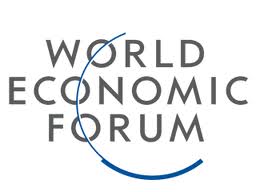



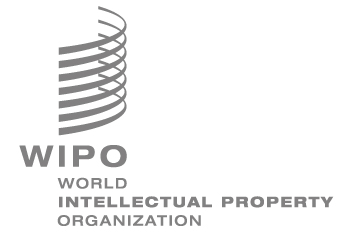
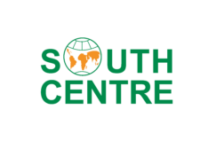


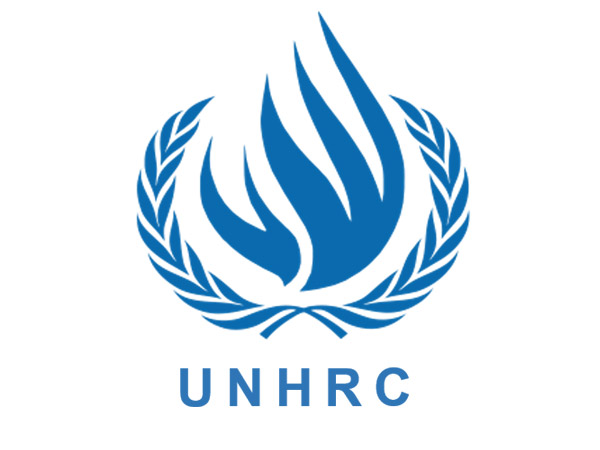

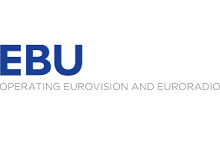
Social media channels
Facebook @WIPO
Flickr @WIPO
Instagram @wipo
LinkedIn @WIPO
Podcast @https://www.wipo.int/podcasts/en/
X @WIPO
YouTube @WIPO